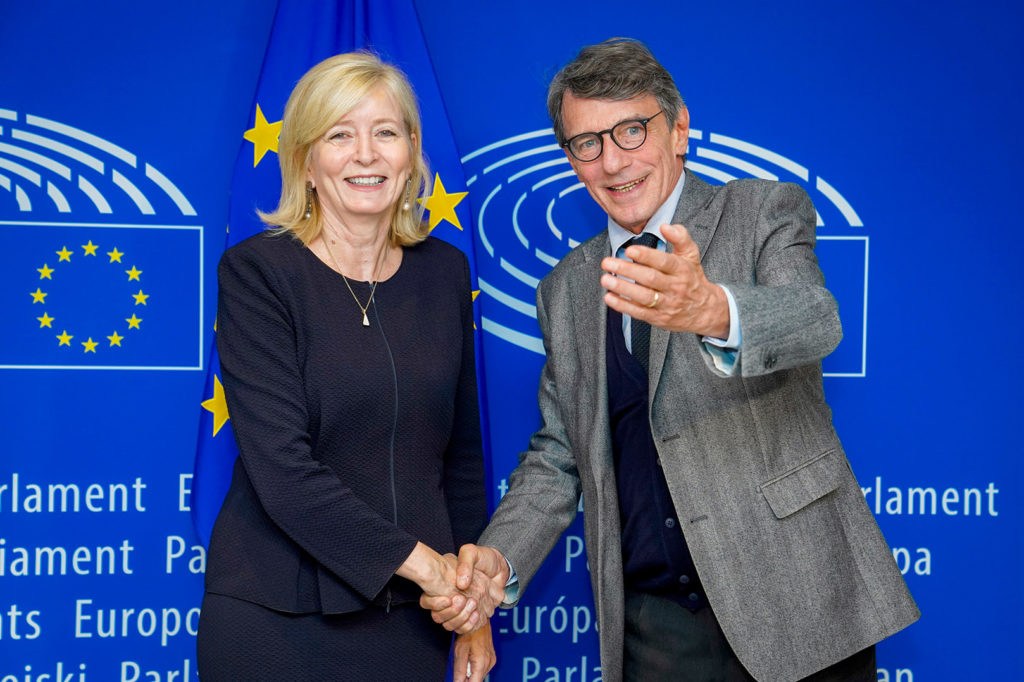Emily O'Reilly, the incumbent European Ombudsman, was re-elected yesterday for a second mandate period (2019 – 2024) by a majority of the European Parliament. O'Reilly, a former journalist and Irish Ombudsman, defeated Julia Laffranque, an Estonian law professor and judge, by 320 to 280 votes or 53 % of cast votes.
Five candidates competed for the post as European Ombudsman, whose core task is to investigate complaints by EU citizens and residents against the European Commission and the other EU institutions.
O’Reilly and Laffranque were as expected the two main contenders, representing different approaches to the work of the Ombudsman institution and the need of change. It would take three rounds of secret ballots to arrive at a majority decision. After the first ballot on Tuesday, one of the candidates left the race. The gap between the two main candidates narrowed, leaving the other candidates far behind.
While both emphasised the importance of the independence of the Ombudsman, O’Reilly has applied a pro-active approach during her first mandate period, earning her the support of the parliament. Laffranque advocated a return to basics and presented an action plan for a more balanced approach.
Besides investigating complaints from citizens, the European Ombudsman can initiate its own reviews or inspections. O’Reilly clashed with the European Commission when she investigated and found maladministration in the appointment of its former secretary-general, who since then has resigned but not because of the investigation.
At the hearings on 3 December of the candidates, O’Reilly clarified that the investigation was not her own initiative but based on several complaints from MEPs. She declared that she intends to continue to work for more transparency in the European institutions and that she favours a review of the 2001 regulation on access to public information.
"For the next five years, I will help ensure the EU maintains the highest standards in administration, transparency and ethics,” she promised after her re-election. “Europeans expect and deserve nothing less.”
The world “ombudsman” comes from the Swedish word “ombud”, meaning representative. Asked once if she did not prefer to call herself “ombudswoman”, she replied that being a woman at the post makes the point and there is no need to change the name.
M. Apelblat
The Brussels Times

